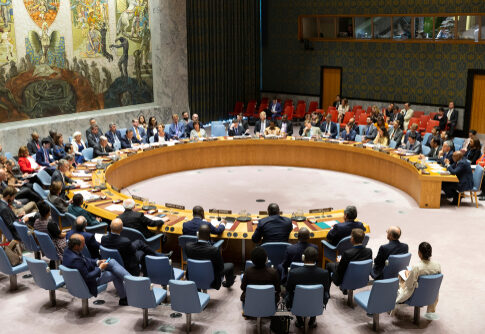Former Zambian President Edgar Lungu, who served from 2015 to 2021, died at the age of 68 while receiving medical care in South Africa, following years of political battles that included accusations of authoritarianism. Lungu’s presidency was marked by both successes, such as appointing Zambia’s first female vice president, and controversies, such as opposition suppression. After losing the 2021 election to Hakainde Hichilema, Lungu was barred by the courts from running for another term.
Leadership Legacy: Mixed Achievements
Edgar Lungu’s path to Zambia’s presidency began after the death of President Michael Sata in 2015, when Lungu stepped in to complete his term. He went on to win a full term in 2016, defeating his main political rival, Hakainde Hichilema. Throughout his leadership, Lungu focused on several key initiatives that supporters point to as significant achievements. He appointed Inonge Wina as the country’s first female vice president, established a national day of prayer, and commuted death sentences for many prisoners.
Diplomatically, Lungu worked to enhance Zambia’s international standing and expand diplomatic relations. His economic policies centered on diversification, infrastructure development, and human security. Despite these efforts, his administration struggled with significant economic challenges, including recession and mounting national debt that would later haunt his legacy and contribute to his defeat in the 2021 elections.
I never thought I could feel this much pain in my heart for the passing of a former president, this one has pained me😭
Rest on His Excellency Dr. Edgar Chagwa Lungu
May God comfort the Lungu family and heal our political landscape in Zambia
From Me and My Family pic.twitter.com/egZdhJYSFi
— Joseph Kalanda (@JosephKalanda8) June 5, 2025
Controversies and Political Tensions
Lungu’s presidency was plagued by allegations of authoritarian tendencies and suppression of political opposition. His government enacted controversial legislation such as the Cyber Security and Cyber Crimes Act, which critics argued restricted freedoms and silenced dissent. Media outlets that criticized the government were shut down, and activists reportedly faced intimidation. His use of emergency powers, which he claimed were necessary “to bring sanity,” was viewed by opponents as a move toward authoritarianism.
After losing the 2021 election to Hichilema, Lungu initially announced his retirement from politics but later attempted a return. This decision affected his retirement benefits and placed him in further political controversy. A judicial ruling eventually barred him from running in the next presidential election, determining that his 2015-2016 partial term counted as a full term toward the constitutional two-term limit. Lungu contested this ruling, claiming it represented political interference designed to prevent his comeback.
Our heartfelt condolences to the family and friends of Zambia’s Sixth President, H.E. Edgar Chagwa Lungu, who passed on today. May his soul rest in eternal peace. pic.twitter.com/qNTyeZtSCX
— Hakainde Hichilema (@HHichilema) June 5, 2025
Final Days and Legacy
Lungu passed away in a South African hospital after several weeks under medical supervision, as confirmed by his daughter Tasila Lungu-Mwansa in an announcement on the Patriotic Front’s official Facebook page. The specific cause of his death has not been disclosed. Prior to his death, Lungu had claimed he was effectively under house arrest with police surveillance, which authorities maintained was standard security protocol for former presidents.
Born in Ndola, Zambia, Lungu had a background in law and military service before entering politics. His legacy remains deeply divisive in Zambian society. Supporters praise his dedication to the nation and point to his infrastructure developments and diplomatic achievements. Critics highlight his governance challenges, alleged suppression of opposition, and the economic difficulties that plagued his administration. His family, including his wife, continues to face corruption allegations that have further complicated public perception of his presidency.


